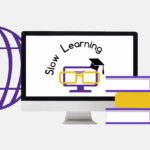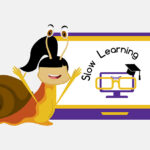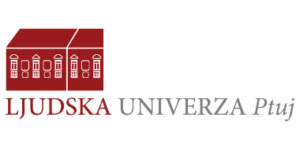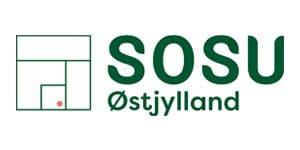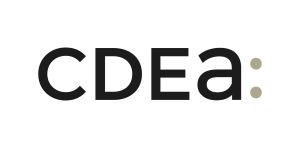General information
| Name of the good practice | “Knowledge Volunteers” |
| Name of the organisation or institution in charge of the project |
In Greece: University of Sheffield – International Faculty CITY College 50+ Hellas |
| Address, City | Thessaloniki |
| Country | Greece |
| 1st project year | 2012 |
| Is the project ongoing? (time alive) | Νο. Time alive 2012 & 2013 |
| The good practice is to be found at web.address | https://citycollege.sheffield.eu/frontend/article.php?aid=1254&cid=12&t=Knowledge-Volunteers-at-CITY-College-%E2%80%93-Round-2 |
| Website of the organisations |
https://citycollege.sheffield.eu/frontend/index.php?chlang=GR_EN |
| No information |
Short description of the project, of the method

The “Knowledge Volunteers” project was a European funded project, in the framework of the Grundvig – Lifelong Learning Program. It involved elders and young people in an educational and training plan, based on voluntary activities and an inter-generational, peer-to-peer learning model. It aimed to promote the acquisition of digital competences among elders at risk of exclusion. It also aimed in promoting intergenerational relations between seniors and young people.
The project was implemented in Greece, Italy, Spain, Romania and Czech Republic.
During the project 4 level courses were implemented (The ABC of ICT, Social Networking, E- Government and Easy technologies) and 4 pilot/testing programs in each country. Each course lasted about 20/30 hours and was organized during the school year, since the didactical model comprises, as key factor, the presence of young students as tutors for elders (in a student/elder ratio of 1 to 1 or 2 to 1), under the active supervision of an adult teacher. Elders were enrolled in the courses by the local network of each country partner.
During the implementation of the project, a didactic kit including guidelines and handbooks for 4 levels of digital literacy competences was developed in English, Italian, Czech, Greek and Spanish and is available to download free of charge on the project website. It is a useful tool for organisation or individuals who wish to replicate the experience in similar or different contexts.
The project was a 30-hours educational program of digital knowledge for seniors. The main objective of the program was to decrease the difference in level of knowledge about new technologies between the generations. When seniors know how to use a computer, they realize that is necessary for their participation in social life of a community and effective communication, in order to save time and other resources.
The difference and the innovation of this program was that the trainers were students of elementary and high school, with the supervision of their educators. Every senior had his personal student-trainer and he/she had the chance to made questions and deepen into the subject of the lesson.
General objective
The project aims were two-folded: to educate older and digitally illiterate individuals on basic skills for computers, and to promote intergenerational learning and volunteering. This way, many older individuals were provided with valuable tools to avoid social exclusion from a contemporary society that relies growingly in digital means to communicate.
General objectives of the project were:
- The promotion of digital learning to older people who are risk at isolation because of the gap of generations
- The encouragement of active participation of seniors through voluntary activities, enhancing the social relationships
- The improvement of production and dissemination of innovative programs and methodologies for seniors
- The creation of a friendly environment for volunteering, with more people participating in voluntary activities
Target groups – participants
Target group to this project were seniors (people over 50 years old) without any knowledge or with few knowledge in how to use computers and/or new technology. Moreover, target group were high-school and college students, who became the teachers of the elders who participated to the project.
For the recruitment of the participants responsible organisations did the following:
- Posts to several portals
- Posts to social media
- Articles to their websites
- Press releases
Which resources were necessary for the project?
For the implementation of the project, the following resources were necessary:
- PCs and tablets
- Classes for the IT lessons
- Wi-fi connection
Why it has been selected as good practice
The project has been selected as good practice, because it was innovative and promoted a different method of teaching computers and new technology to elders. The innovation of the project was that high-school and college students would teach students over 50 years old basic computer skills on one-on-one basis. Students who successfully completed the first cycle of the programme, as well as new mature students, continued with the “advanced group” of the Knowledge Volunteers who were introduced to the digital world of Social Networking, such as Facebook and YouTube. The beginner group run in parallel with new students who were taught among other basic computer skills, how to navigate the Internet and how to manage an email account.
The method which was implemented – young people teach elders on one-on-one basis – was something new, at least in Greece, and produced very good results as generations came together and elders who participated felt comfortable to work with young people and learn together with youngsters about how to use computers.
It was a different, new way, of teaching new technology to seniors.
Final comment
Mr. George Pavlidis, the program coordinator and PhD Candidate in Gerontology at the research Centre SEERC said: “I am happy that we manager to run a second cycle of ‘Knowledge Volunteers’, proving that there is a mutual interest from older and young people for knowledge and intergenerational cooperation. The programme aims at promoting active ageing and active youth at the same time. It’s a very interesting blend of roles and I believe that the outcome is a win-win case for both sides involved. The programme definitely gives a different dimension to education.


